Results of the delegation visit of the South Kazakhstan Medical Academy to the Abu Ali Ibn Sino Tajik State Medical University within the framework of the World Bank project
The aim of the visit is to provide knowledge about the latest methods of work in the field of teaching students of the Faculty of Pharmacy and their further application in practice.

Results: The training hold in an interactive format. Members expressed their opinions, shared their experiences. In the training attended EMC, the education quality department, specialized and basic departments in the specialty of "Pharmacy". Following issues were discussed during the training: 1) Innovative educational methods and teaching technologies in pharmaceutical education; 2) Role-playing and business games in the study of the discipline "Pharmacognosy"; 3) Team method of teaching (team-based learning) on the example of the experience of the Department of Drug Technology on teaching the discipline "Drug Technology"; 4) Critical thinking as the main tool for analyzing knowledge and skills on the example of the discipline "Pharmacognosy"; 5) Active teaching methods on the example of the discipline "Technology of drugs"; 6) Learning through experience. How do we apply experiments to practice Pharmacognosy?; 7) Round table "Application of innovative technologies in pharmaceutical disciplines".
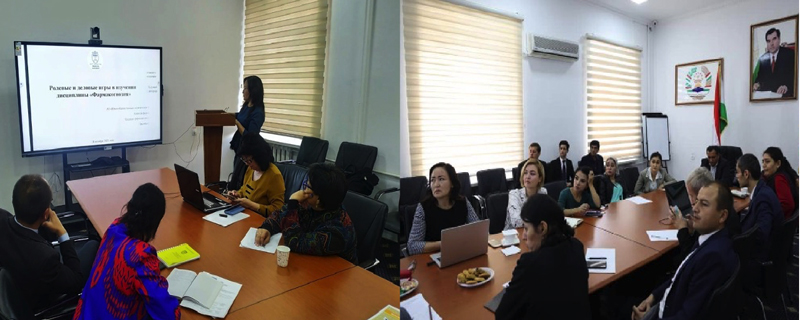
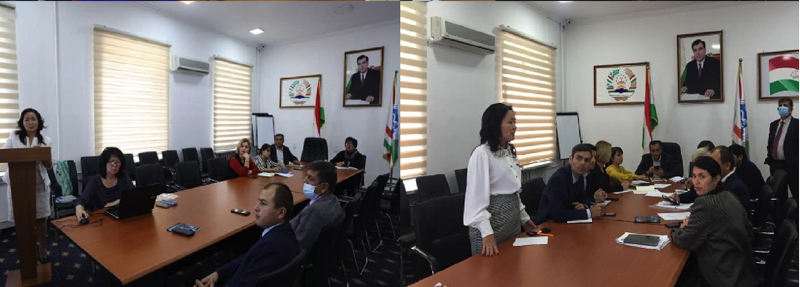
Representatives of South Kazakhstan Medical Academy visited the pharmaceutical center, the Central Research Laboratory, the TSMU Museum. Got acquainted with the fact that in the ESPC “Pharmacy” held daily practical classes in the following subjects: Pharmacognosy - for 3rd year students of the Faculty of Pharmacy; Technology of dosage forms - for 3rd year students of the Faculty of Pharmacy; Pharmaceutical Chemistry - for 3rd and 4th year students of the Faculty of Pharmacy; OEP - for 4th and 5th year students of the Faculty of Pharmacy; Pharmacology - for 4th year students of pharmaceutical and 3rd year students of general medical, dental faculties. Practical classes are conducted using pharmaceutical devices, medicinal herbs and interactive teaching methods. In the center "Pharmacy" students of 1st-5th courses also undergo field and industrial practice in specialized subjects. During industrial practice students with their supervisors traveled to the Kharangon, Kondara, Kiblai, Varzob gorges, the Gissar valley, the Kanask area of Vahdat to study the flora, taking into account the seasonality. At the same time students collect medicinal plant raw materials after which they are dried, processed and various dosage forms are prepared from the raw materials in the center.
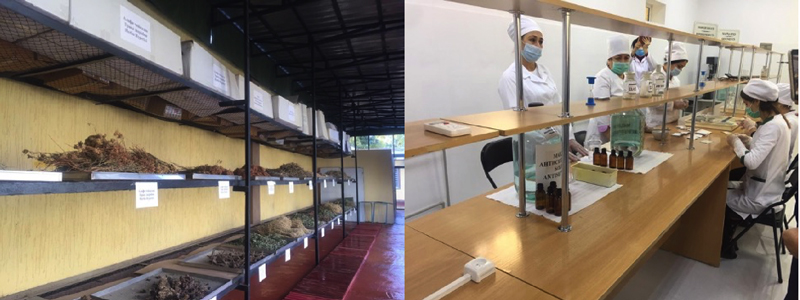
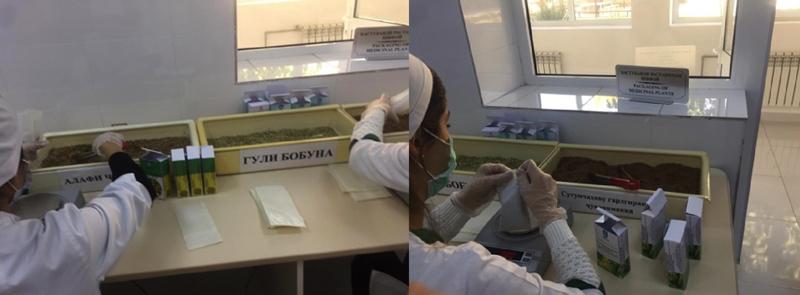
Also, at the Department of Pharmacognosy visited the herbarium fund and the phyto bar, in which various juices are made.
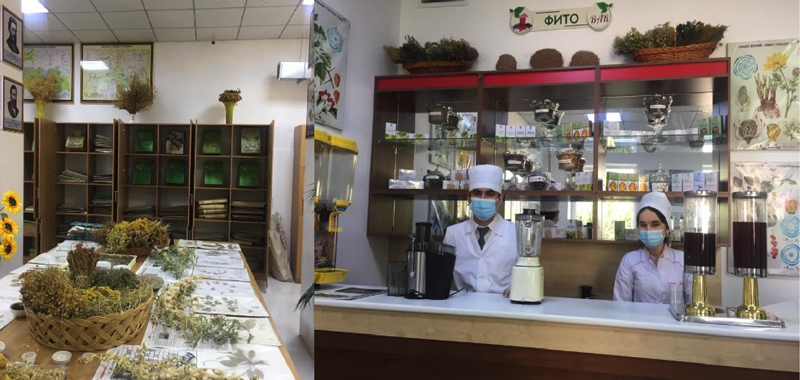
During our visit to the CSRL, we were aware that during the existence of the CSRL 36 doctoral and 112 candidate dissertations were completed and defended on its basis, more than 600 joint works were published, and 18 inventor's certificates were received. Biochemical, Clinical, Morphological, Molecular Genetic laboratories, a laboratory of experimental Pharmacology and experimental Surgery are functioning currently. Experimental Surgical interventions carried out in 2 operating blocks. Laboratory animals are raised by the vivarium of the Central Scientific Research Laboratory. The scientific directions of the Central Scientific Research Laboratory are diverse and are determined by the priority areas of scientific research of the University, as well as the goals and objectives of the scientific topics of the departments, on the basis of which scientific research is held.
The museum full with many awards and photographs that were historically significant for the University. We got acquainted with the history of the creation of this museum, namely, that in 1995 the rector of the University Yu.B. Iskhaki instructed Kh. K. Ibragimov, a teacher of the department of history of the Tajik people, to create a scientific and historical museum. Prior, the museum functioned in one auditorium, as a historical corner. In the museum created 75 scientific corners. In May 2008, the museum again restored and renovated to 85 corners.
Conducting this type of training provides an opportunity for teachers of the Faculty of Pharmacy to improve their professional skills and abilities in the use of new technologies in the educational process.
 857 views
857 views
